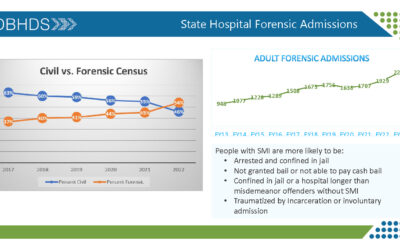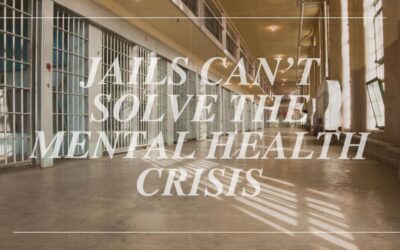Romantha Turner-Miller, BSN RN-CEN
May 11, 2021
While recognizing exactly what ugliness this pandemic has meant for our individual and collective mental health, I can also see that there are now some definite positive lights at the end of COVID-19’s long, dark, and isolating tunnel. One of the strategies I’ve used to combat depression and anxiety during this time has been looking for little glimmers of light wherever I can. I’ve been calling them Pandemic Silver Linings, and I think some of them are worth sharing here because they may be helpful to others who are struggling.
For well over a year now, humanity has experienced a uniquely shared time of suffering that has included, according to the CDC:
- “Feelings of fear, anger, sadness, worry, numbness, or frustration,
- Changes in appetite, energy, desires, and interests,
- Difficulty concentrating and making decisions,
- Difficulty sleeping or nightmares,
- Physical reactions, such as headaches, body pains, stomach problems, and skin rashes,
- Worsening of chronic health problems,
- Worsening of mental health conditions,
- Increased use of tobacco, alcohol, and other substances.”
Even individuals who have never identified previous mental health struggles have suffered because of COVID. Individuals with a history of mental health issues may have been dealt an especially hard blow by the pandemic. I would add to the above list of common mental health symptoms:
- Grief for loved ones or friends who have suffered through COVID infections or have died as a result of COVID
- Complicated grief- because the trauma of losing a loved in the past may have resurfaced during this time, and you are now faced with reprocessing that
- Moral distress, Burnout, Compassion Fatigue, and PTSD among health care workers
- Increased risk of suicidality and suicide
Despite the negative aspects of living life in a pandemic I’ve tried hard to find small-scale, daily, personal silver linings. Small things, like the fact that wearing makeup & styling my hair each morning is now completely unnecessary because I’m covered with 2 masks and a full face-shield for 8 hours a day. This means more time to sleep in and to pet my dogs in the mornings. Also, as an introvert who only functions as an extrovert out of necessity, it’s honestly been pleasant to have a break from going places and doing things and being sociable all the time. I’d simply rather be cuddling my dogs.
Of much greater import than these things, I’ve seen a more open discussion about mental health emerging in the media, in medical organizations and institutions, and among my own family and friends. It’s as though we’re experiencing the birth of a new and novel cultural conception of the truth that we all, as human beings, do indeed have a thing called “mental health”. Just like physical health, mental health has its highs and its lows, and its acute and chronic illnesses. Perhaps we are beginning to recognize as a society that we should take steps to care for our mental health routinely?
Concurrently with this possible silver lining, I’ve witnessed the definite silver lining of the emergence of telehealth as a health care resource that seems here to stay. Telehealth resources for mental health needs are the biggest share of the Silver Linings Playbook that I want to offer to MHAVA readers. Whether you are insured or uninsured, and whether you need therapy, psychiatry, or a combination of treatment modalities, there is now new legislation in place to allow therapists and psychiatrists to provide telehealth services. This means that you can access clinical mental health care from wherever you are, provided that you have access to a phone or to a computer with internet service.
Here are some great recommendations for connecting you quickly to quality mental health care & peer support via telehealth (and/or in-person):
Telehealth Therapy and Psychiatry Services
#1 Psychology Today
Here you can find detailed listings for therapists and psychiatrists either in your area or remotely (since new legislation allows for telehealth practice across state lines according to provider licensure).
You can search not only by geographical area and insurance provider coverage, but also for the individual needs you have including specific mental health issues, and specific therapies offered. You can search for providers who can and will identify or ally with your gender & sexuality, ethnicity, religion or spirituality, and age in order to find the best fit for you.
https://www.psychologytoday.com/us/therapists/online-counseling
#2 Virginia Association of Community Service Boards (VACSB)
Virginia has 40 different regional Community Service Boards (CSBs), the public agencies providing a variety of mental health services for all age groups on an individual, group, and/or family basis. From the home page, you can scroll down to the Find Your CSB link on the right hand side of the screen:
Or navigate straight to the local directory here:
CSB/BHA Directory – Virginia Association of Community Services Boards (VACSB)
#3 Veteran Specific Mental Health Care
From the home page, you can scroll and enter your zip code at the bottom screen to find resources in your area:
https://www.maketheconnection.net/
The VA is providing telehealth psychology and psychiatry visits right now, and the Make the Connection site is full of information regarding various veteran-specific mental health issues.
#4 Treatment Specific to Substance Abuse and Mental Health Care
A confidential and anonymous source of information for persons seeking treatment facilities (inpatient or outpatient, with some telehealth services provided) for substance use/addiction and/or mental health problems.
https://findtreatment.samhsa.gov/
Peer Support Lines
VA COPES – Free and confidential COVID-19 support line
Call or text 1-877-349-6428
Monday – Friday 9:00am to 9:00pm
Saturday – Sunday 5:00pm to 9:00pm
Spanish speakers are available.
National Suicide Prevention Lifeline
Call 1-800-273-TALK (8255) for English,
1-888-628-9454 for Spanish, or
Chat Online at http://www.suicidepreventionlifeline.org/GetHelp/LifelineChat.aspx
Phone and chat available 24 hours/day, 7 days/week.
Free and confidential support line for all veterans, even if they are not enrolled in VA health care or registered with VA. The Veterans Crisis Line can also connect Veterans to their local coordinators, who follow up to ensure ongoing care.
Available 24 hours/day, 7 days/week.
Call 1-800-273-TALK (8255) and choose Option 1,
Text 8388255, or
Chat Online at https://www.veteranscrisisline.net/get-help/chat
Virginia’s Statewide, Peer-Run Warm Line
When you need someone to talk to, you need to request community mental health resources, or you have specific questions about your recovery journey, the peers who answer our Warm Line listen with compassion and provide non-judgmental support.
1-866-400-MHAV (6428)
Monday through Friday from 9AM to 9PM
Saturdays, Sundays, and Holidays from 5PM to 9PM
*Text /Chat Support: Wednesday, Friday & Saturday 5PM to 9PM
*Spanish speakers: Fridays and Saturdays, 5PM to 9PM



